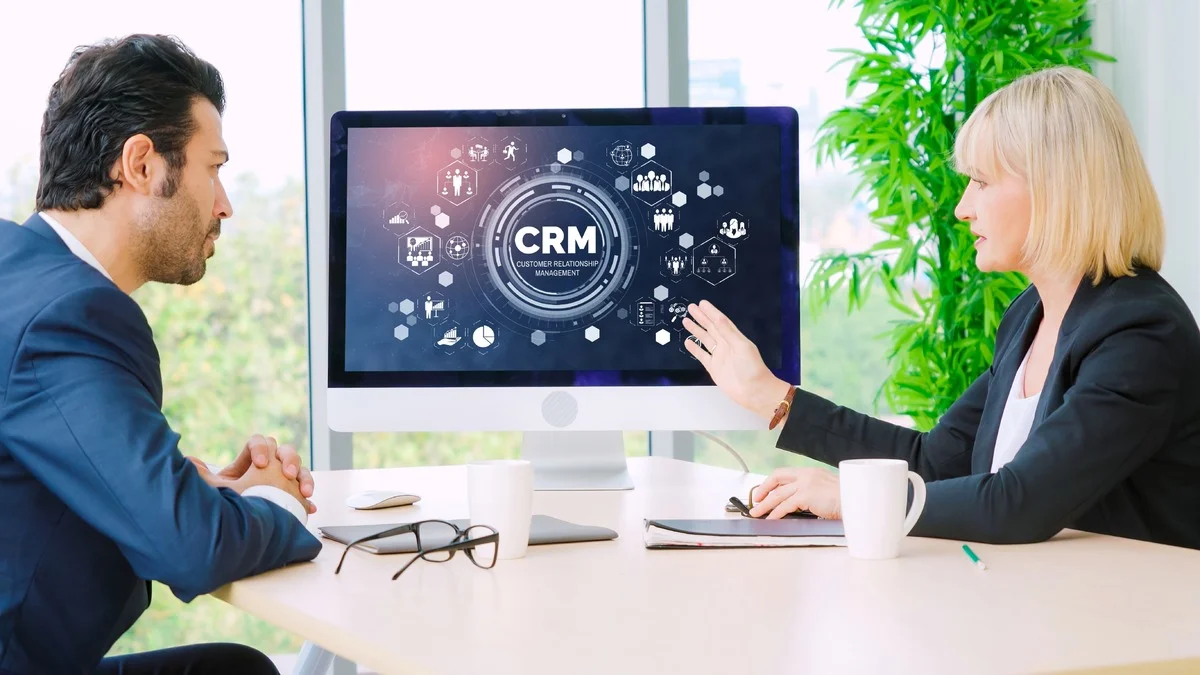Nexa Lab Blog – Customer Relationship Management (CRM) software is a tool that helps businesses organize and track interactions with customers and potential customers.
It acts like a central hub, storing information about your customers, such as their contact details, purchase history, and preferences. This allows you to understand your customers better and tailor your interactions to their specific needs.
For all types of businesses, including Managed Service Providers (MSPs), CRM can optimize sales processes, improve marketing, and enhance customer service. For MSPs, CRM is particularly helpful for managing client relationships, tracking service agreements, and ensuring prompt billing. It can also uncover opportunities to increase revenue.
Let’s explore what CRM is, how it works, its key features and benefits, and the different types available.
Definition of CRM Software
CRM software is a technology solution designed to manage a company’s interactions with customers and potential customers. It facilitates the organisation, automation, and synchronisation of sales, marketing, customer service, and technical support. The primary goal of CRM software is to improve business relationships, helping businesses stay connected to customers, streamline processes, and enhance profitability.
How CRM Software Works
CRM software works by collecting and storing customer data from various interactions, including emails, phone calls, social media, and in-person meetings.
This data is then organised and accessible through a centralised database, enabling you to track and manage customer interactions and data throughout the customer lifecycle.
CRM systems often integrate with other business applications, allowing seamless data flow and providing a holistic view of customer activities. This integrated approach helps you analyse customer behaviour, preferences, and needs, facilitating better decision-making and personalised customer experiences.
A well-integrated CRM and PSA system is like a dynamic duo, working together to streamline processes, improve customer service, and drive business growth. Don’t miss out on this powerful combination. Check out the top 5 PSA software options that can take your MSP to the next level.
Learn More: 5 Best PSA Software for MSPs: Top Options to Drive Your Business Growth
Key Features of CRM Software
CRM software offers a broad range of features designed to enhance the management of customer relationships and streamline various business processes. Here are some of the key features you can expect from a robust CRM system:
1. Contact Management
Contact management is a fundamental feature that enables you to store and organise customer information.
This includes contact details, communication history, and social media profiles. With all customer data in one place, you can quickly access and manage customer interactions, ensuring personalised communication and effective relationship building.
2. Sales Automation
Sales automation tools help you manage the entire sales process, from lead generation to closing deals.
These tools can track sales activities, automate follow-up tasks, and forecast sales performance. Sales automation reduces the administrative burden on your sales team, allowing them to focus on selling and nurturing customer relationships.
3. Marketing Automation
Marketing automation features allow you to design, execute, and track marketing campaigns.
These tools enable you to segment your audience, personalise marketing messages, and analyse campaign performance. Marketing automation helps you reach the right audience with the right message at the right time, increasing the effectiveness of your marketing efforts.
4. Customer Service and Support
Customer service tools in CRM software facilitate case management by tracking, prioritising, and resolving customer issues.
These tools can include ticketing systems, knowledge bases, and live chat support. Effective customer service management ensures timely resolution of customer problems, enhancing customer satisfaction and loyalty.
5. Reporting and Analytics
Reporting and analytics features provide valuable insights into customer data and business performance.
These tools allow you to generate detailed reports, track key performance indicators (KPIs), and analyse trends. With comprehensive analytics, you can make data-driven decisions, optimize business processes, and improve overall strategy.
6. Workflow Automation
Workflow automation streamlines business processes by automating repetitive tasks and standardising procedures.
This feature ensures that tasks are completed consistently and efficiently, reducing the risk of errors and improving productivity. Workflow automation can be applied to various processes, including sales, marketing, and customer service.
7. Lead Management
Lead management tools help you capture, track, and nurture leads throughout the sales funnel.
These tools enable you to assign leads to sales representatives, monitor lead interactions, and prioritise follow-ups. Effective lead management ensures that no opportunities are missed and that leads are converted into customers.
8. Social Media Integration
Social media integration allows you to connect your CRM system with social media platforms.
This feature enables you to monitor social media interactions, engage with customers, and gather insights from social media activity. Integrating social media with your CRM system helps you maintain a consistent brand presence and improve customer engagement.
Benefits of Using CRM Software
Implementing CRM software offers numerous benefits for your business.
It enhances customer relationships by providing a comprehensive view of customer interactions, enabling personalised communication, and improving customer satisfaction.
CRM software streamlines business processes by automating repetitive tasks, reducing administrative workload, and allowing your team to focus on more strategic activities.
It improves sales performance through better lead management, sales tracking, and forecasting, ultimately boosting revenue.
Additionally, CRM software provides valuable insights into customer behaviour and business performance, aiding in data-driven decision-making and strategy formulation.
Types of CRM Software
CRM software comes in different types, each catering to specific business needs. Here are the main types, according to techtarget.com:
Cloud-based CRM
Cloud-based CRM, also known as software as a service (SaaS) or on-demand CRM, utilises cloud computing technology to store data on an external, remote network.
This setup allows employees to access the CRM system anytime and anywhere with an internet connection. Often, a third-party provider handles the system installation and maintenance.
Cloud-based CRM is particularly appealing to companies with limited technical expertise or resources due to its quick and easy deployment capabilities.
However, data security is a primary concern with cloud-based systems since the company doesn’t physically control the storage and maintenance of its data.
There is a risk of data compromise if the cloud provider goes out of business or gets acquired by another company. Additionally, compatibility issues may arise when migrating data from internal systems to the cloud.
Cloud CRM is often seen as a cost-effective option, with vendors typically charging on a subscription basis with monthly or yearly payments.
However, the subscription fees can add up over time, potentially making it more expensive than an on-premises model.
Popular cloud-based CRM providers include HubSpot, Salesforce, Zendesk, and Zoho.
On-premises CRM
On-premises CRM involves the company taking full responsibility for the administration, control, security, and maintenance of the CRM software and data.
The company purchases licenses upfront rather than subscribing to a service. The software is installed on the company’s own servers, and the company is responsible for any upgrades.
Installation process can be lengthy, especially for businesses with complex CRM needs, but it allows for greater control and customisation. Companies with specific CRM requirements might benefit from this approach.
Many cloud-based providers, such as Aptean and Salesforce, also offer on-premises versions of their CRM software.
Open Source CRM
Open Source CRM provides access to the source code, allowing companies to customize and modify the software to fit their specific needs at no cost. This flexibility can be particularly beneficial for businesses looking to integrate social media channels and enhance their social CRM practices.
Open source CRM platforms, such as Bitrix24, OroCRM, SugarCRM, and SuiteCRM, offer alternatives to proprietary systems from vendors like Salesforce and Microsoft.
The choice of CRM deployment method depends on the company’s specific business needs, resources, and goals, as each option comes with different costs and benefits.
CRM software is a powerful tool for managing customer relationships, but imagine its potential when seamlessly integrated with a Professional Services Automation (PSA) solution. Discover the keys to selecting the perfect PSA to supercharge your MSP’s efficiency and client satisfaction.
Learn More: How to Choose the Best PSA Software for Your MSP
Conclusion
CRM software is a vital tool for Managed Service Providers, offering a comprehensive solution to manage customer relationships effectively. Understanding the definition, workings, key features, benefits, and types of CRM software will allow you to make an informed decision about the best CRM solution for your business.
Investing in CRM software is a smart move for any business looking to improve sales, marketing, and customer service. But to get the most out of your CRM, it needs to work with your other tools.
Nexalab’s App Fusion can help you connect your CRM with other essential platforms, like a PSA software, for example. This means you get a complete view of your customer data, automate repetitive tasks, and personalise your customer interactions. It’s a solution that helps you get the most out of your CRM investment. Contact Nexalab today to explore how App Fusion can drive your business forwards.




